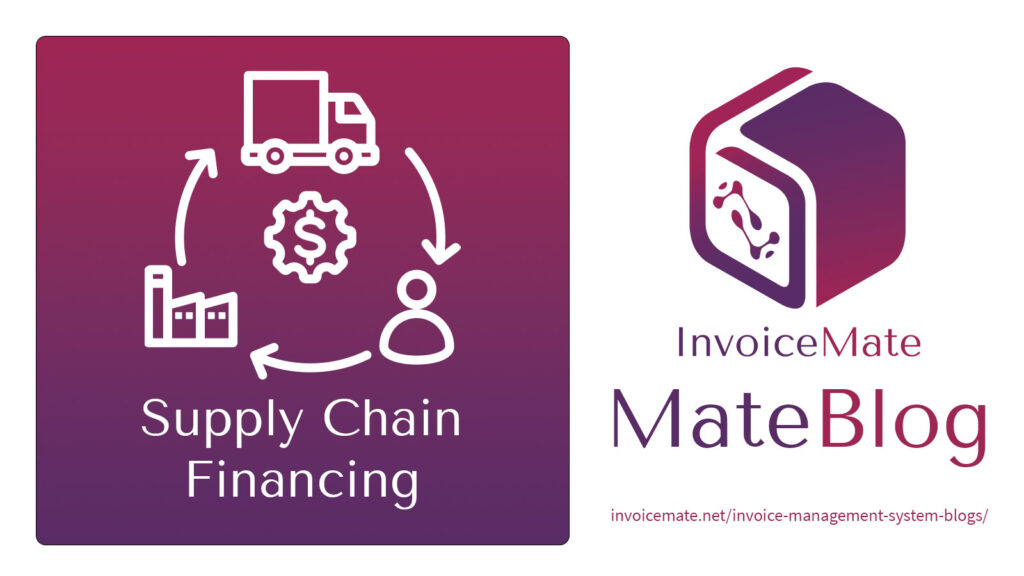Connect With Us
Supply Chain Financing

Supply chain financing is one of the most beneficial types of financing in manufacturing and distribution businesses. Let’s take a quick look at its dynamics and benefits for businesses.
What is Supply Chain Financing:
Supply chain financing, sometimes referred to as supplier financing or reverse factoring, is a type of financial arrangement that enhances a supply chain’s cash flow by paying suppliers ahead of schedule. The buyer, who is frequently a larger firm or corporation, the supplier, who is a smaller company that offers the buyer goods or services, and a financial institution or lender work together in this collaborative strategy.
How It Works:
Typically Supply Chain Financing works as follows:
Buyer-Supplier Working:
A buyer acquires products or services from a supplier, who then sends the buyer an invoice with a payment term that is often due after a specified period of time (such as 30, 60, or 90 days).
Request for Early Payment by Supplier:
The supplier has the option of requesting early payment for the invoice rather than waiting for it to be paid in accordance with the original payment conditions.
Financing Institution’s Role:
A financing Institution, such as a bank or a third-party lender, intervenes to give the supplier the early payment. Instead of evaluating the creditworthiness of the supplier, the financial institution evaluates the creditworthiness of the customer (the anchor company in the supply chain). This is so that the financial institution may rely on the buyer’s position to honor future invoice payments.
Discounted Early Payment to Supplier:
The financial institution pays the supplier early for the invoice, but typically at a discounted rate, so the supplier actually receives less money than the full amount of the invoice. The discount reflects the cost charged by the banking institution for accepting early payment.
Payback to Financial Institution:
The buyer pays the financial institution instead of the supplier when the original invoice payment term is due. The buyer pays the whole invoice amount to the financial institution, which completes the transaction.
Benefits of Supply Chain Financing:
Better Cash Flow:
Early payment to suppliers enables them to cover their urgent financial obligations and lessens their dependency on short-term loans or credit.
Enhanced Working Capital:
While assuring prompt payment of their suppliers, maximizing the use of their working capital, and maintaining cash reserves, buyers might extend their payment periods.
Strong Buyer & Supplier Relationships:
In Supply Chain Financing, the supplier gets the advantage of the buyer’s financial credibility. It enables suppliers to manage their cash flow efficiently. Owing to this, supply chain financing enhances the relationship between buyers and suppliers.
Lower Financing Costs:
Compared to conventional financing methods like bank loans or the use of factoring services, suppliers can get paid early at a lesser cost.
Minimized Supply Chain Risks:
The risk of supply chain disruptions brought on by suppliers’ financial challenges is reduced when their financial stability is improved.
In essence, supply chain financing is to the benefit of all three parties.
- Supplier
- Buyer
- Financing Institution
Supplier:
The supplier is paid ahead of schedule, which boosts its cash flow and potentially reduces the need for expensive short-term financing or credit lines. Additionally, it aids the supplier in better working capital management.
Buyer:
By extending the payment terms, the buyer can improve its cash flow without burdening the supplier. This could result in improved terms or discounts from suppliers in the future as well as stronger supplier relationships.
Financing Institution:
As the buyer is typically a larger, more reputable company, the finance company is at a lower credit risk while earning for facilitating the early payment.
Overall, Supply Chain Financing benefits all parties involved in the supply chain by optimizing cash flow, reducing financial risks, and fostering stronger business relationships.
InvoiceMate For Supply Chain Financing:
InvoiceMate is the world’s first blockchain-powered invoice financing enabler. InvoiceMate works as a stand-alone invoice management and financing system as well as a 3rd party embedded solution into existing financing systems.
InvoiceMate offers a comprehensive and workable solution for supply-chain financing.
To learn more about how InvoiceMate can help your supply chain business, please feel free to write us at:
